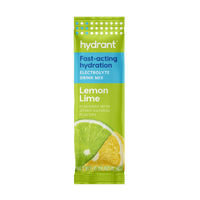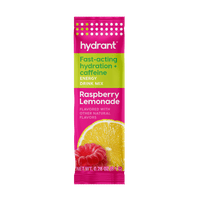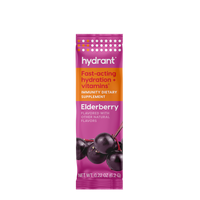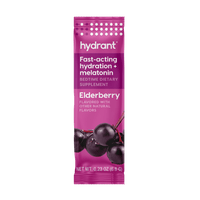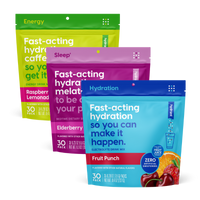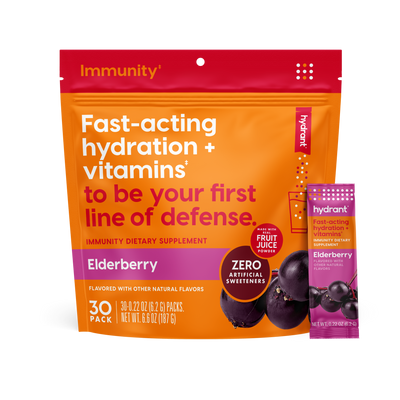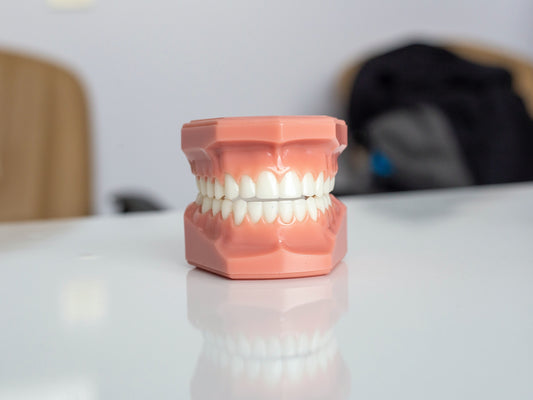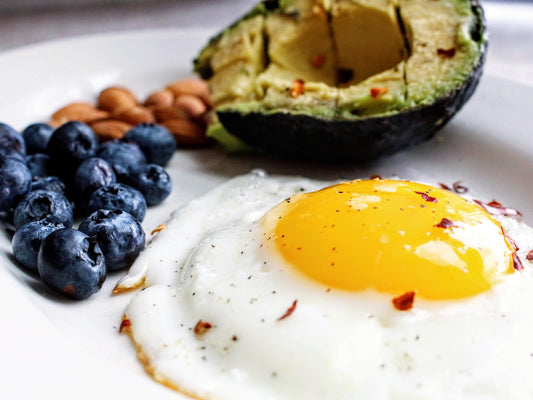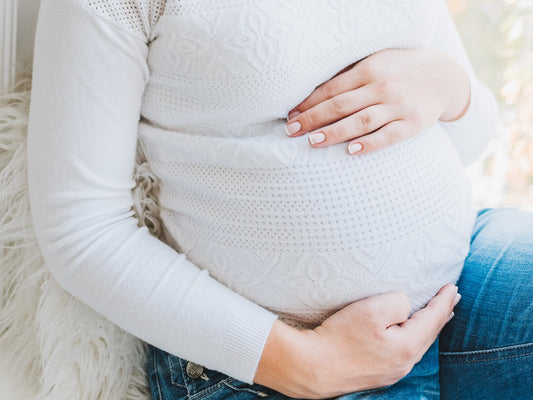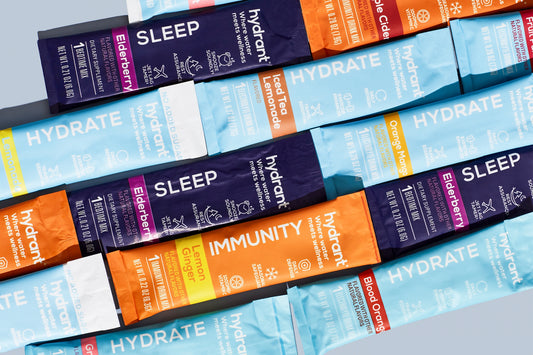Pre-Workout and Pregnancy
Most people who work out regularly take some type of supplements, whether they are electrolytes, vitamins, or energy boosters. Many of these supplements give us an energy boost, while others help us avoid deficiencies and dehydration.
Pre-workout supplements for women are quite varied, and the main difference between them is in the ingredient list. In general, pre-workouts help you feel more energized, making it less likely to skip training when you just don’t feel like it.
While pre-workout supplements can be an excellent addition to a women’s diet and lifestyle, the situation shifts in case of pregnancy and breastfeeding. Unfortunately, while supplements are good for health in most cases, pregnant women should avoid all supplements unless they are recommended by their doctor.
There is a very high risk to hurt your baby when taking supplements that are not reviewed by the FDA (Food and Drug Administration) for safety [1]. This means that some dietary supplements may contain bacteria, pesticides, metals, or chemicals that pose risks for pregnant women.
Many pre-workout supplements, if not most of them, contain caffeine. During pregnancy, it is recommended to limit caffeine to 200 mg per day, although many specialists recommend avoiding caffeine during pregnancy altogether because it was shown to lead to smaller babies at birth [2].
Risk of Pre-Workout While Pregnant

The risks of pre-workout supplements while pregnant depend on the ingredients of your chosen supplements. Some of these include:
- A high content of caffeine (more than 200mg per day), which increases the risk of low birth weight and even miscarriage [2].
- Beta-alanine is an ingredient added to many pre-workout supplements to reduce fatigue; however, there is insufficient research on its effects while pregnant, so specialists recommend avoiding beta-alanine altogether.
- Creatine – creatine supplements are generally safe for pregnant women. They were proven to reduce the risk of complications and may protect the baby’s brain, but further research is required [3].
- BCAAs are (exogenous) amino acids commonly found in supplements, but they are not safe for pregnant women. The main risks are abnormal placental and fetal growth [4].
- Green tea – having green tea while pregnant is safe, but it contains caffeine, so you need to monitor its concentration and dose.
- Vitamins (such as B vitamins) – these are another key component in pre-workout supplements; if you already take prenatal vitamins (which is recommended), having a pre-workout supplement may lead to overdose, and vitamins in excess can cause many problems. For instance, excess vitamin A may increase the risk of malformations of the baby’s urinary tract, bones, and nervous system [5].
Is Pre-Workout Safe for Pregnant Women?
Overall, whether the pre-workout supplement is safe or not for pregnant women depends on what it contains. Some brands are specially created with natural ingredients and very low levels of caffeine. To stay on the safe side, you should always check with your doctor whether you can take a specific supplement or not.
As long as you consume less than 200mg of caffeine per day and you do not experience any side effects from your pre-workout, it should be safe for you and for your baby. You need to carefully read the label before choosing a pre-workout, and always calculate how much caffeine is included in a serving.
It’s best to start with only half a serving or a lower amount, so you make sure you stay within the guidelines. Then, you can add a bit more if you decide that the dose is not sufficient – easing your way in helps you control the intake and avoid potential risks or side effects.
It’s best to keep in mind that you can always take pre-workouts after your pregnancy and breastfeeding, as you also return to your normal workout routine. Growing a baby is never easy – and your body definitely needs a healthy, balanced diet that will provide energy and nutrients during the pregnancy.
Tips to Stay Fit and Healthy While Pregnant
Even if you used to be very active before pregnancy, you may now feel like you need those pre-workouts more than ever. If you lack motivation or energy, there are a few tips you can implement to make sure you stay fit and healthy while pregnant.

Low to moderate activity every day is highly encouraged. If you lack energy, stick with simple tasks: go swimming, go for a short walk, or stretch on a yoga mat. If you just have a bad day and cannot find the time or the energy to do any of these, don’t beat yourself up – you can go back to the routine the next day.
While exercise is generally healthy during pregnancy, there are some workouts you need to avoid. Some of these include risky activities (like climbing or others that put you at risk of falling or hurting yourself), jumping, bouncing, hopping, and others.
Remember to listen to your body. Exercise for less than 45 minutes and contact your midwife or doctor immediately if you experience any abnormal symptoms. Also, don’t over-exercise during very hot weather.
After 16 weeks of pregnancy, you should not do any exercises while lying flat on your back. When you are on your back, your baby can press on a blood vessel and reduce the blood that goes to your heart and, subsequently, to your baby.
Hydrate
While hydration is important for all people, it becomes even more so when you are pregnant. Pregnant women must drink more water because they are at a higher risk of dehydration [6]. Water helps your baby develop and forms the amniotic sac and the placenta. To help you stay hydrated, you should always have a bottle of water nearby and eat or snack on plenty of veggies with high water content, such as cucumbers.
Pay Attention to Your Diet
Cravings are a difficult part of almost any pregnancy. Unfortunately, not many people crave cucumbers and peppers, but rather a big, juicy cheeseburger or other unhealthy foods. When you crave something, your body is trying to tell you that you’re missing some key nutrients. Fast food and junk food may be satisfying when the cravings hit, but these highly processed foods are not the best choice for you and your baby.
Instead, you can still have things you crave, but turn them into healthier alternatives. For instance, instead of having a juicy burger from your favorite fast-food restaurant, try to prepare a healthy version at home using leaner ingredients.
Finally, there’s a myth going around that, when you’re pregnant, it’s okay to overeat because “you are eating for two”. In fact, you should stick with the recommended range for weight gain throughout your pregnancy, which means you will have an easier time losing the extra weight after birth and you will feel better throughout your pregnancy.
Take Care of Your Mental Health
Pregnancy is not only challenging for our bodies but also for mental health. Many pregnant women stay awake all night worrying about the baby, if they will be a good mom, or waiting for the baby’s kick to see if they are still alive!
All of these thoughts can take a toll on your mental health, which may make you lose sleep, feel tired, and lead to a domino effect that impacts your overall health and your baby.
Try to establish a relaxing routine before bed, so you will be less likely to experience insomnia. If there are any pressing worries that keep you awake or concern you, you can discuss them with your doctor, midwife, or share them with your partner, a relative, or a friend and let them help you out.
Reduce Sugar Consumption

One of our main enemies is sugar and it can also be one of the main guilty pleasures when pregnant. However, high sugar consumption will most likely lead to extra pounds that will be difficult to shed after your baby is born.
This doesn’t mean you should not listen to your body when you crave some sweets. There are plenty of sweeteners on the market deemed safe for pregnant women. For instance, monk fruit will add zero calories to your diet, while also being about 200 times sweeter than sugar. In addition to this, this could be an excellent alternative for women with diabetes (gestational or not).
Bottom Line
In general, pre-workout supplements are packed with caffeine and vitamins to give us a boost when working out. Depending on their ingredients, these may not be a safe option during pregnancy.
Some pre-workout supplements are specially designed for pregnant women, so they contain acceptable levels of caffeine and do not contain harmful compounds. In general, pregnant women should not take any supplements before consulting their doctor.
There are many other ways to stay fit and healthy during pregnancy without taking supplements. Planning out your diet, adding plenty of vegetables and fruits, eating lean proteins, and exercising moderately each day will help you stay fit. Also, limiting sugar intake and taking care of your mental health are important for your and your baby’s well-being.
References
